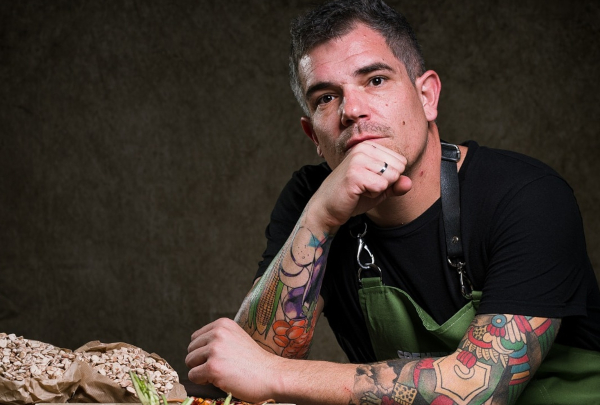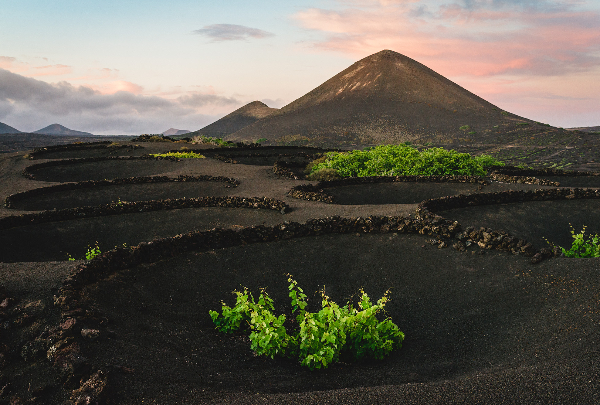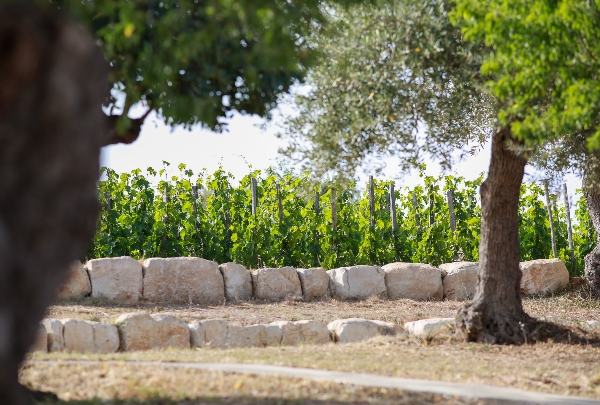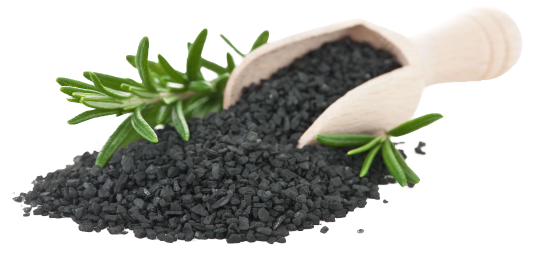Interview
Joao Faraco: “the volcanic environment is noticeable, not just in the flavour and texture”

Lanzarote must have something that makes people from all over the world settle there. Among them is a Brazilian chef who can no longer understand his cuisine without produce from an island “whose volcanic origins make them unique”. Joao Faraco runs Coentro in Puerto Calero, a modern, multicultural restaurant where “a Spaniard from the mainland, a Canary Islander or a Frenchman” can feel equally comfortable. Let me just take a tour around the island with him.
The man recognised as the best chef in the Canary Islands 2018 is Brazilian, “although I’ve come to identify so much with Lanzarote that I now feel I’m from here”. He explains this while he talks with colleagues from the island at one of the preparatory sessions for Worldcanic, the congress that is going to show the taste of Volcanic cuisine of Lanzarote and of the world, as well as “the union that you can now find among chefs on the island”. Now; because this wasn’t the case before. “The Saborea Lanzarote Festival has done a great job to get us to unite and move forward together, as we are so small that if we don’t, we’re all going to go to the dogs”.
What’s a Brazilian doing in Lanzarote?
I came here looking for culinary adventures in Spain and I fell in love with this place so much that I knew that it was here that I just had to continue to develop. There’s a quote by Saramago that I identify with: "Lanzarote is not the land of my birth but it is the land that I call home".
You came to Spain in 2007; and to Lanzarote in 2010. What did you do in that time?
I worked at various restaurants on the mainland and ended up at La Sucursal in Valencia, with Jorge Bretón. After a while I got tired in the end. The chef from a hotel from here, the Princesa Yaiza, came to train with us, and I said to him as a joke: "Hey, I’m really tired of this. I’ve been working flat out for a while now, non-stop. Get me a job on the islands and I’ll come over there". And he told me: "Come whenever you like". And so I came here. It was love at first sight. I arrived in Lanzarote and I haven’t left since.
And after only eight years on the island, in 2018, you won the Award for Best Chef in the Canary Islands.
Yes, I did. It was a challenge that the hotel proposed for us. The competition fitted in pretty well with the way that we do things, because for me the terroir, and even more so now in Lanzarote, is everything. I entered the competition in 2017 without any expectations, because I knew how difficult it would be for a chef from somewhere else to win, but I came second. I felt bad about it, so I took part in the following year and I won. I was really pleased.
What made you fall in love with the island?
The landscape, definitely. I’m Brazilian. I come from a green, tropical country, with plants everywhere, with rivers, vegetation... And you come here and you see bare mountains, these rocks, these colours... This was the initial impact it made on me. And I also feel good because I’ve found a subtropical climate that is very similar to the one that I have always known. But I understand that what affected me most was the combination of the lack of vegetation, the colours and the resilience of these people. There are many places in the world where you can live and these people have decided to live here. This really made an impact on me.
Do you see any differences in the character of Spaniards from the mainland, Brazilians and Canary Islanders?
People here are really outgoing. People from the South of Spain, in general, are. Although everybody is Spain is wonderful. People from here are also more like Latinos. They emigrated to Venezuela… They are more outgoing, more “bailongos” (they really like to party), as I like to say.
How did you set up Coentro, the restaurant that you run now?
It came from the need to create my own personal project. At Princesa Yaiza, it used to take six months to change a menu, and the time came when I didn’t want to do that anymore. I wanted to do something real, light, with my character, that I could stamp my personality on. I did it first of all with a really small restaurant in Playa Blanca, and we’ve now spent a year in the new location in Puerto Calero and we’re really pleased.
What is Coentro?
It’s about cooking produce from Lanzarote using my head, with the influence of classic Spanish cuisine, of course; with notions of the French cuisine that I studied in Brazil, and with my great South American chefs as an inspiration: all of this subject to the produce that we can find here.
So, French people go to Coentro and understand your cooking, so do Spaniards, and Canary Islander do as well?
That’s right. Coentro is a multicultural restaurant. It doesn’t have a cuisine that is closed off. What I do have is cooking that is fresh, with small portions, with few stews, and little fat. It’s a cuisine where, for example, you can have a cheek stew with cocoa and El Valle potatoes.
A cuisine with "fantastic produce" is what it says on your web site...
The produce is the heart of the dish. Techniques are at its service. I never cover it up; it’s the boss. I merely interpret it to try and improve it. I don’t care whether it’s a potato, a wreckfish or a courgette, provided that this produce has a history and a reason behind it.
What is it that produce from the island has? Can you notice the volcanic environment?
It’s really noticeable, not just in the taste and texture. Especially in the amount of production. The fact that there’s not much of it means that the produce is amazing. I talk to producers and they tell me that they have two kilos of strawberries. "Hand them over". With these I’ll make a dish and when they’re finished, that’s it. This singular aspect makes the cooking on the island more special. Furthermore, the volcanic environment is noticeable in produce in the lack of water, you can notice this in the textures, in the powerful flavours… As well as in the rough quality that they have. They’re really different. The terroir is present.
I’ve got a couple of days and I come as a tourist to Lanzarote. Recommend what I should do.
The good thing about Lanzarote is that you can get round the island in a day… As for gastronomy I could mention a lot of places. The quality of the gastronomy on the island has also improved in the last few years thanks to the support of the Island Council, which has made us focus on how to work as restaurateurs.
I’d tell you that Lanzarote is beach, volcano and sand; it’s walking up Los Ajaches, not being afraid to go barefoot, going into a cave and diving into it among the fish. It’s going up the Montañas de Fuego and seeing how the colours gradually change through the clouds... It’s incredible. If I have to mention three places I’d say the Papagayo beach, where I often go to meditate in the afternoon to relax; the Mirador del Río, and a visit to La Graciosa, which although it is another island forms part of us.
When you see events like Worldcanic being held you get the feeling there is a certain degree of unity among the chefs on the island. Does this really exist?
Yes, it does, we have achieved this. It didn’t use to exist. When I worked in Valencia I used to see this unity. Raúl Aleixandre, Ricard Camarena, Quique Dacosta used to come round, although there was always a bit of a feud between the two of them... But we were together. When I came here I was really alarmed. I couldn’t see this unity. Each of us was doing their own thing. However, the work that Lanzarote Council and Saborea Lanzarote have done has been fundamental. It has brought us all together. Now there are about fifteen well trained chefs, and each of us has their own conception of what a restaurant is but we all row together for the good of the island. And that’s a good thing, because we are so tiny that if we start fighting with each other, we’re all going to go to the dogs...



.jpg)








